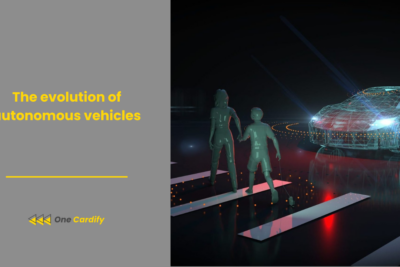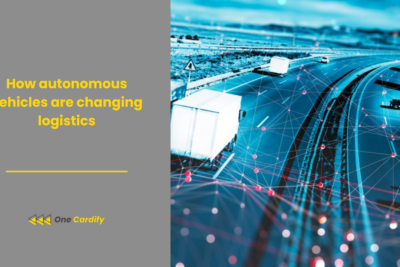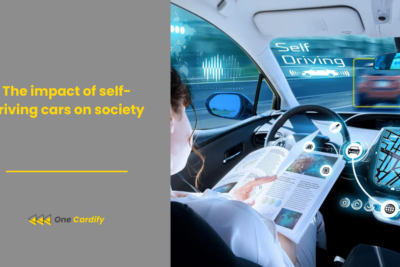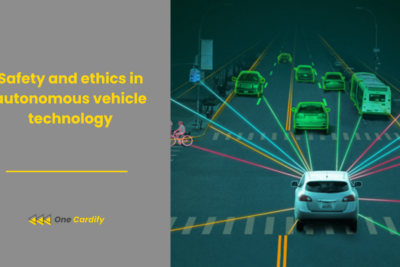
How 5G technology empowers smart cities
5G technology becomes a significant element that pushes the development of cities into smart urban entities as urban environments change. This blog explores the diverse ways in which fifth-generation wireless technology is transforming urban places into more efficient, sustainable, and livable surroundings.With the exceptional speed and reliability that 5G delivers it will act as the nucleus to the development of smart cities, thus, allowing a wide range of applications and services that aid in resources optimization, public services improvement, and enhancement of the citizens’ quality of life.The potential of 5G in combination with smart city technologies is promising. Herein, we investigate the many faceted influence of 5G on urban development, ranging from improved connectivity to the facilitation of sustainable urban practices via advanced IoT tools.
Unveiling the Power of 5G in Urban Innovation
The 5G technology goes beyond mere speed boosts to usher in an era of ultra-reliable low latency communications (URLLC). This technology infrastructure jump is a must for the smart city concept, real-time data processing and instantaneous response systems.The main purpose of 5G deployment is to support the wide use of Internet of Things (IoT) devices. Networked devices perform an important function in control and monitoring of the urban infrastructure, among them traffic lights, public transportation systems, water supply and waste management networks.5g relevance in smart urban environments touches a lot of sectors to a great extent and it makes operational efficiencies much better. Another example is smart grids that are able to control the demand of electricity in real-time so that energy wastage is minimized thus supporting the environmental sustainability.In addition to operational benefits, 5G strengthens citizen interaction with their city. Real-time data connectivity and seamless communication improve city life, offering residents precise information concerning public events and services.
Related content
Related content
5G and Public Safety: A New Frontier
In the area of public safety, one of the transformative effects of 5G in smart cities is. The improved connectivity allows for more efficient approaches to the emergency response, utilizing live data from drones and other camera-equipped sensors around the city.The advanced surveillance systems driven by 5G are capable of detecting incidents and threats with more precision which enable rapid response of emergency services. Additionally, 5G allows drones to be used in situations where access is difficult, offering aerial views in emergencies.In disaster management, 5G networks provide resilient communication links which are critical for coordinating response efforts and transmitting information during disasters.Most importantly, 5G technology enables safe cities through intelligent traffic management systems that minimize accidents and congestion, making the urban areas safe for pedestrians and the drivers.
Economic Implications and Opportunities
5G technology is an engine of economic growth in urban environments where it stimulates innovation and attracts investments. The improved connectivity enables businesses, starting from startups to the long-established enterprises, creating new services and markets.Smart 5G cities have the potential to transform the operations of businesses in virtually every sector- logistics and manufacturing of course but also areas like healthcare, where telemedicine and remote monitoring become practical for large numbers of people.In addition, the 5G enables the development of a digital economy by ensuring the high-speed, reliable connectivity which e-commerce and online services need to operate.In the economic development 5G plays a very important role in the creation of high-value jobs in technology and innovation sectors that also push the socioeconomic progress of smart cities.
Overcoming Challenges and Future Outlook
5G offers a lot of opportunities to the smart cities, but its deployment has a few challenges such as infrastructure costs, data security threats and necessary regulatory framework that will protect privacy and ethical standards.Thus, the collaboration of public and private sectors is very important as cities go forward with the implementation of 5G in order to overcome these challenges and make sure that technological development benefits all citizens equally.Going forward, the everlasting growth of 5G technology will boost smart city projects, providing fresh opportunities for development and making cities more flexible and resistant in the future.
5G is the fifth generation of wireless technology, offering faster speeds, lower latency, and greater capacity than its predecessors, facilitating advanced applications and services.
5G enables the extensive deployment of IoT devices and supports real-time data processing, improving urban infrastructure management, public safety, and providing a foundation for innovative urban services.
Yes, through enhanced connectivity, 5G supports advanced surveillance, efficient emergency response, and intelligent traffic management systems, contributing to safer urban environments.
5G drives economic growth by enabling new business models, supporting the digital economy, and creating opportunities in technology and innovation sectors.
Challenges include infrastructure costs, data security, and the need for regulations to protect privacy and ethical standards in the deployment of 5G technology.
By enabling smart grids and efficient resource management, 5G contributes to reduced energy usage, lower emissions, and the promotion of sustainable urban development practices.
As 5G technology evolves, it will offer even more innovative solutions to urban challenges, making cities more adaptive, efficient, and resilient.
Conclusion
5G technology is not only changing the way we communicate; it is radically altering the landscape of our cities. This is because 5G has the potential to push innovation in services and infrastructure and thus, opens up the opportunities for more inclusive, sustainable and smart urban futures.The consideration of 5G in urban development strategies is said to open a new era where technology becomes a link through which the information transfers into more connected, efficient, and resilient urban life.As we enter the digital age, the function of 5G in supporting smart cities emphasizes the significance of technology in shaping the cities of the future.Collaborative approach and the elimination of current obstacles will ensure the prosperity of 5G-driven smart cities representing the beginning of a new era of urbanization.






Related Posts